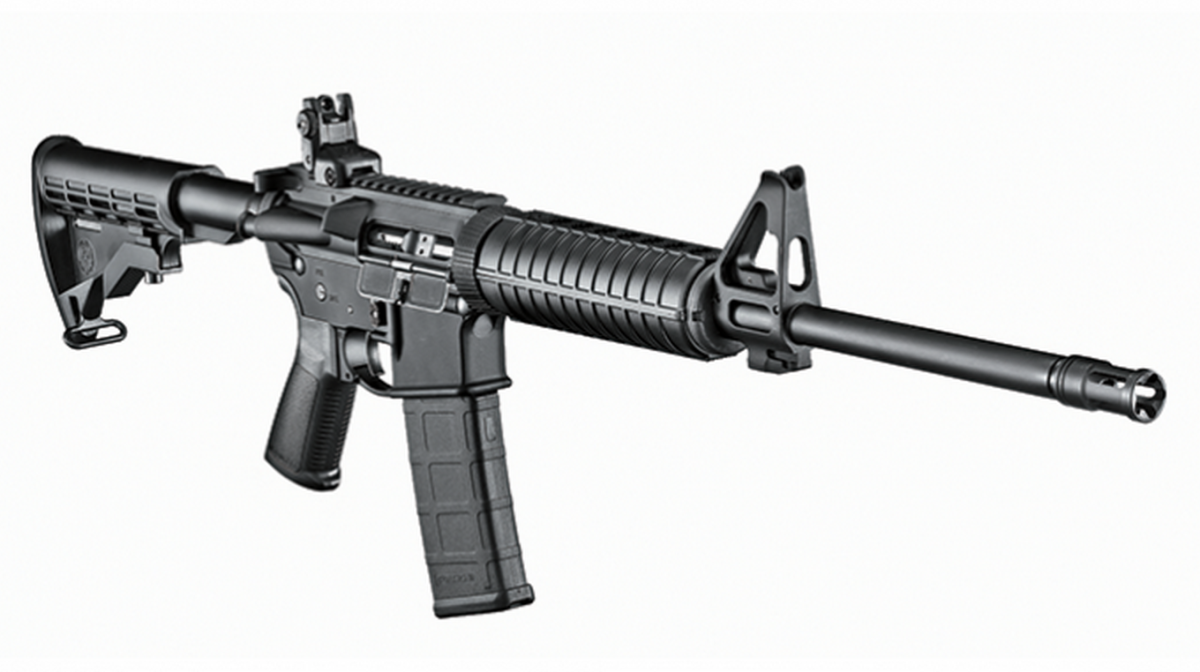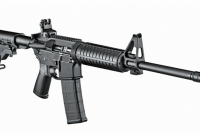Support strong Canadian climate journalism for 2025
The Armalite-15 is one of the most infamous firearms of the modern era, used in at least four mass shootings in the U.S. in recent years.
So eyebrows were raised recently when Conservative leadership candidate Maxime Bernier chose to single it out in a fundraising pitch.
"With my firearms legislation, many popular guns like the AR-15 would become non-restricted, because gun legislation wouldn't be based on fear anymore," Bernier wrote in an email.
Yet, Bernier isn't alone on having a gun policy that would make the AR-15 more accessible.
Several of his rivals would as well, with platforms linked to the adoption of a formal Conservative party policy on simplifying the way guns are currently regulated.
The argument for the AR-15 in particular is rooted in a belief that in form and function, it's no different than many other rifles and is only restricted because of its reputation.
But in a crowded campaign field, sticking out has become priority one for the leadership contenders.
Highlighting the AR-15 helps do just that, for reasons that are bigger than the weapon itself.
Last year, contender Kevin O'Leary gave an interview with an Ottawa radio station talking about his personal experience shooting the AR-15 at FBI range, calling it an unbelievable weapon that would never be used for hunting.
"That is a weapon that is just used to kill everybody in the room you’re in. Who should have that? Nobody," he said, according to a transcript of the remarks.
While O'Leary is a known gun enthusiast, the way he talked about the AR-15 hinted at his character, suggested Nicolas Johnson, editor of TheGunBlog.ca, which advocates for the rights of gun owners.
A post about O'Leary's comments has been one of his most popular.
"He's telling us, 'I've just done this thing, but nobody else should be allowed to do it', which sounds like a double-standard," Johnson said in an interview.
Where a candidate stands on guns can give insight into where they stand more broadly on personal freedoms, defence, property rights, even heritage in the context of what rights aboriginal Canadians hold, he said.
To some of Bernier's competitors, the choice to focus on the AR-15 is an example of American politics coming north.
Michael Chong, who has made a point in his campaign of noting he lives on a farm and is no stranger to the use of firearms, said nobody needs an AR-15.
"Proposing to make the AR-15 unrestricted — a variant of which was used at Sandy Hook Elementary School in Connecticut to kill 20 children aged 6 and 7 and six adults in 2012 — is an extreme policy," he said in an email.
"Canadians do not want to adopt U.S.-style firearm policies."
Firearms have come to play an outsized role in American politics.
The National Rifle Association was one of the key, early backers of U.S. President Donald Trump and is reported to have spent as much as $14 million to support him.
Canada has its own gun advocacy groups, albeit much smaller in size, voice and cash. But they are playing a role in the Conservative leadership campaign.
The oldest is the Canadian Shooting Sports organization, which has been fielding calls from candidates, president Tony Bernardo said.
The group is sending the campaigns' platforms around to its members, but isn't taking a public stand, Bernardo said, noting they have to work with whomever wins in the end.
Two other organizations are grading the firearms policies of the various leadership candidates and circulating those report cards among members.
They are highly coveted marks. Many of the candidates have been reaching out directly to the groups, asking for meetings to discuss gun policy.
Bernier's A-plus grade from the Canadian Coalition for Firearms Rights shouldn't be taken as an explicit endorsement, said group president Rod Giltaca, who stressed that his organization is non-partisan and focuses on education.
But with 2.1 million registered firearms owners in Canada and millions more who legally use them, there is no doubt they are a group with significant political clout, he said.
In raising the AR-15, Giltaca said, Bernier is trying to send a clear message.
"He's trying to tell gun owners that he is going to help them, he knows that the way that our laws our structured are unjust," he said.
"He is saying he will stand up and take the political risk associated with making it right."






Comments